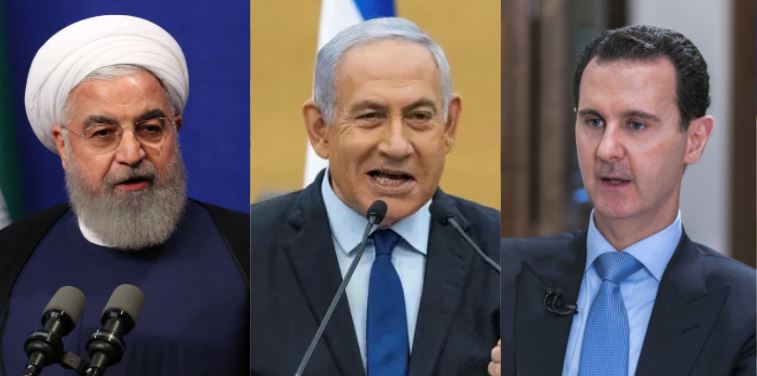A great leader is known by their actions, and the fact that the opposition is ganging up to make sure Benjamin Netanyahu is unseated, even in such a situation he is making sure that he keeps the pressure on Israel’s national opponents. By these last-minute offensives against Iran and Syria, he is making sure that the fault lines are widened in the coalition government. The coalition government comprises left, right, Arab, far-right and even far-left parties.
This collection of parties are bound to have very different perspectives vis a vis what Israel’s foreign policy should be. And by making sure that Israel does not relent on its regional interests by pounding the security threats in Iran and Syria as well as hurting them where it hurts the most, Netanyahu is making sure that the far-left’s policy objective to make Israel pacifist power in the most heated geopolitical theatre is not successful.
According to a representative for the Israeli army, a Syrian regime observation post erected on the Israeli side of the buffer zone in the Golan Heights was destroyed on Tuesday. Spokesman Avichay Adraee claimed on Twitter that the army “destroyed a forward observation post of the Syrian army that was set up in an Israeli area west of the Alfa line in the Golan Heights,” referring to the Israeli side of an UN-patrolled buffer zone between the two nations.
In addition to this, In the last two days, Iran has been hit by two huge fires. The first ravaged and then sank a navy warship, the Kharg, which was reportedly the Iranian fleet’s largest ship. The ship sank near the vital Strait of Hormuz on Wednesday after a 20-hour effort to put out the fire. The second fire broke out at a petrochemical factory in southern Tehran on Wednesday, casting a heavy cloud of smoke across the city.
The two latest fires erupted just as the latest round of talks between the remaining parties to the JCPOA—Iran, China, Russia, Britain and Germany, along with the European Union—was wrapping up in Vienna. Israel’s regular operating procedure has been to not confirm or deny such assaults. For its part, Tehran has been hesitant to recognise Mossad’s ability to strike targets on Iranian soil or off its coast with impunity for its own reasons.
The developments for the past few days and now the latest news of Israel and UAE signing a tax treaty to boost economic cooperation, can be observed as an endorsement of the UAE for Israel and more specifically Benjamin Netanyahu. Israel and the United Arab Emirates inked a tax pact on Monday, according to Israel’s Finance Ministry, which described the move as a boost to commercial development after the two countries normalised relations last year.
UAE understands the farsightedness of Netanyahu and how important was his role in the Abraham Accords. In addition to this, the UAE elite is as desperate as Netanyahu himself to make sure that the Iran Nuclear Deal does not go through.
And the latest actions by Netanyahu explains why the UAE has been endorsing and relying on Netanyahu to make the right decisions. Netanyahu’s last-minute attacks on Iran and Syria will widen fault lines in the succeeding coalition government, and as the UAE has predicted, these developments may create a situation where after some time of adventurism, Israel will finally bring Netanyahu back to the position of Prime Minister.








